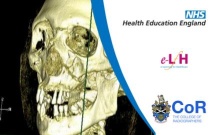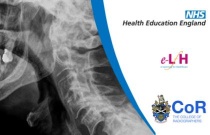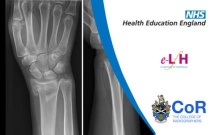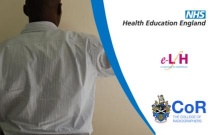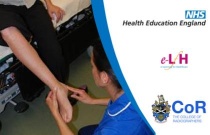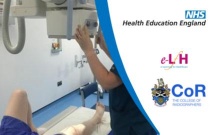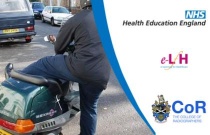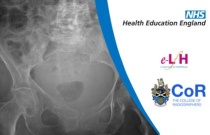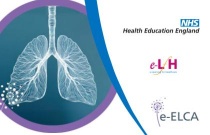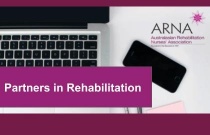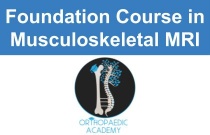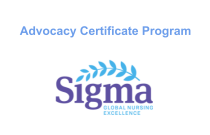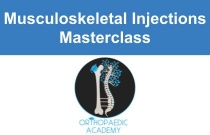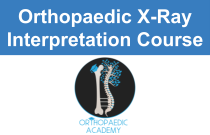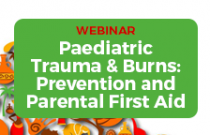Image Interpretation - Adult Skeleton (X-ray): Facial Bones - Session 2
Anne Lancaster
This session will describe common fractures, dislocations, pathologies and normal variants found in the facial bones. These will be illustrated using radiographic examples.
Image Interpretation of the Cervical Spine: Session 3
Claire Giles
A self-assessment exercise based on Image Interpretation of the Image Interpretation - Adult Skeleton (X-ray): Cervical Spine - Sessions 1 and 2.
SRH Needs of People Who Identify as LGBTQ or Non-binary
Andrew Motherwell
This session will introduce some of the key considerations when addressing the sexual and reproductive health needs of people who identify as transgender or non-binary, as well as those in same-sex and bisexual relationships.
Image Interpretation - Adult Skeleton (X-ray): Wrist - Session 2
Claire Giles
This session will describe common fractures, dislocations, pathologies and normal variants found in the wrist joint. These will be illustrated using radiographic examples.
Image Interpretation of the Elbow: Session 1
Sarah Gallimore
This session will look at injuries related to the elbow joint. It will focus on identifying anatomy demonstrated on both diagrams and radiographs, and offer examples of radiographic technique. Mechanisms of injury (MOI) will be discussed to develop a knowledge base in clinical presentations.
Image Interpretation - Adult Skeleton (X-ray): Shoulder - Session 1
Joanne Hargreaves
This session will look at injuries related to the gleno-humeral joint, clavicle, scapula and humerus. It will focus on identifying anatomy demonstrated on both diagrams and radiographs, and offer examples of radiographic technique. Mechanisms of injury (MOI) will be discussed to develop a knowledge base that can be used in clini....
Image Interpretation of the Ankle: Session 1
Nick Woznitza
This session will look at injuries related to the ankle. It will focus on identifying anatomy demonstrated on both diagrams and radiographs, and offer examples of radiographic technique. Mechanisms of injury (MOI) will be discussed to develop a knowledge base in clinical presentations.
Image Interpretation - Adult Skeleton (X-ray): Knee - Session 2
Tracy O'Regan
This session will describe common fractures, dislocations, pathologies and normal variants found in the knee, tibia and fibula. These will be illustrated using radiographic examples.
Image Interpretation - Adult Skeleton (X-ray): Hip - Session 1
Kara Mell
This session will look at injuries related to the hip joint and femur. It will focus on identifying anatomy demonstrated on both diagrams and radiographs, and offer examples of radiographic technique. Mechanisms of injury (MOI) will be discussed to develop a knowledge base in clinical presentations.
Image Interpretation - Adult Skeleton (X-ray): Hip - Session 3
Kara Mell
A self-evaluation quiz based on Image Interpretation - Adult Skeleton (X-ray): Hip - Sessions 1 and 2.
Managing Excessive Respiratory Secretions
Richard Hillier
This session looks at excessive respiratory secretions in the last days of life; what causes them as well as an integrated approach to their management and their impact on those close to the patient. This session was reviewed by Richard Kitchen and last updated in June 2021.
Partners in Rehabilitation
Alison Brooks and Meredith Coote
Join Alison Brook & Meredith Coote as they examine the issue, generally of the advantages of engaging unpaid family/friend carers in health settings. The advantages are for all parties: the health team, the person receiving care and the carers themselves. Carers often feel invisible, disrespected and under-utilised in hea....
New Test Max
Mr WCEA Administrator
supports scalable and sustainable training and capacity-building across 100+ countries in global health and humanitarian programs by leveraging digital transformation and digital learning.
Foundation Course in Musculoskeletal MRI
Dr. Nicola Evans, Mr. Kashif Ahmed Memon, Mr Vilas Sadekar, Abdullah Hanoun, Parag Garg, Sriram Srinivasan
This course will provide attendees with an understanding of normal and pathological appearance in orthopaedic MRI radiology in adult and paediatric cases. Delegates will leave the course with the knowledge to describe normal and abnormal MRI images for the upper limb, lower limb and the spine, and how to link these with ortho....
Narrative Shifts: Reshaping Dialogues in Suicide Prevention
Dr. Delali Fiagbe, Seguwa Agroh. and Professor Erik Hahn
Join us for the insightful webinar, Narrative Shifts: Reshaping Dialogues in Suicide Prevention, where we will delve into the critical aspects of suicide prevention in Ghana. This session aims to inform and educate participants on the existing laws and regulations, including the Criminal Offenses Act and the Mental Health Act, e....
Advocacy Certificate Program
Wanda Montalvo
4.75 Hours
This certificate program aims to develop nurses’ knowledge and skills in advocating for themselves as well as at the organizational, community, regional, or global levels. The future of nursing is informed by the lived experiences of nurses, educational preparation, and personal connection to social and professional issues that....
Musculoskeletal Injections Masterclass
Firas Arnaout and Mahmoud Massoud
The Musculoskeletal Injections Masterclass is a comprehensive course designed to provide in-depth knowledge and hands-on experience in the field of musculoskeletal injections. This masterclass covers a wide range of injection techniques, from basic to advanced, ensuring participants are equipped with the skills and knowledge to....
Orthopaedic X-Ray Interpretation Course
Justin Mooteeram, David Hughes, Piyush V. Gavai, Mr. Akhil Kapoor, Dr. Nicola Evans, Aabid Sanaullah, Sriram Srinivasan, Mr. Mohammed As- Sultany, and Emad Samuel Boles Saweeres,
This continuing professional development program has been CPD-approved by the prestigious Royal College of Surgeons of Edinburgh. The course is designed to enhance attendees’ comprehension of both normal and pathological presentations in orthopaedic radiology. Upon completion of the course, participants will possess the ex....
Management of Neurodegenerative Disorders in Adults
Timilehin Seyi Ogunsakin
Neurodegenerative disorders (NDDs) are a broad range of pathological conditions which target the neurons, creating problems in movements and mental functions. The NDDs have drawn a lot of attention among the diseases because of their complexity in causes and symptoms, lack of proper effective treatment(s), no report of irreversi....
Paediatric Trauma & Burns: Prevention and Parental First Aid
Dr Elaine Volschenk
Prevention of paediatric trauma and burns is a thoroughly researched subject and as clinicians, we are all aware of the principles surrounding the subject, but unfortunately, most families in South Africa don’t have the necessary first aid training to assist the child before they get to the hospital. This presentation will revie....
